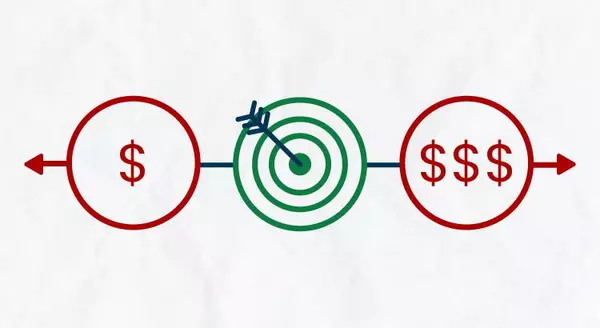
Interest Rates are at 8%
Interest Rates are at 8%As the real estate market continues to evolve, it's important for buyers, sellers, and even industry professionals to stay informed about the latest news and trends. One critical factor that impacts the housing market is interest rates. Recently, interest rates have surged to 8%, causing ripples throughout the real estate industry. In this blog post, we will explore the effect of higher interest rates on real estate and mortgages.Real Estate NewsInterest rates play a substantial role in shaping the real estate landscape. When rates rise, the cost of borrowing increases, leading to higher mortgage payments for buyers. Consequently, this can result in a decrease in demand for homes, as potential buyers might be deterred by the increased financial burden. Sellers, too, may face challenges as higher interest rates can limit the pool of qualified buyers, potentially leading to longer listing periods and lower sale prices.Moreover, rising interest rates often prompt investors to shift their focus from real estate to other investment options. This shift can reduce the number of buyers in the market and lead to a slowdown in the overall real estate activity. It is essential for all market participants to stay abreast of interest rate changes in order to make informed decisions and navigate the evolving landscape effectively.Mortgage ImpactWhen interest rates rise, the affordability of mortgages is significantly affected. Higher rates mean higher monthly mortgage payments for borrowers. For instance, let's consider a $300,000 mortgage with a 30-year term. At an 8% interest rate, the monthly payment would be approximately $2,201. However, if the interest rate were only 4%, the monthly payment would decrease to about $1,432. This stark difference demonstrates the impact of interest rates on mortgage affordability.Moreover, higher interest rates can impact the borrowing capacity of potential buyers. As rates increase, lenders may tighten their lending standards, making it more challenging for buyers to qualify for a mortgage. This can limit the pool of potential buyers and consequently impact the demand for real estate.On the other hand, rising interest rates can be advantageous for sellers who have owned their properties for an extended period. As mortgage rates increase, existing homeowners may be less inclined to sell and move to a new property. This limited supply can create a seller's market, driving up home prices. However, it's crucial to note that the overall impact of interest rates on home prices varies depending on various factors such as local market conditions and economic indicators.Navigating the Real Estate MarketGiven the impact of interest rates on the real estate market, it's crucial for all involved parties to stay informed and prepared. Buyers should carefully assess their financial readiness before entering the market, taking into consideration rising interest rates and their impact on mortgage affordability. It is advisable to get pre-approved for a mortgage and consult with a trusted financial advisor to understand the potential implications.Sellers should pay close attention to local market conditions and pricing strategies. While rising interest rates may lead to a smaller pool of buyers, a well-positioned and competitively priced property can still attract interested parties. Engaging a knowledgeable real estate agent who understands the local market and can effectively market the property is crucial.For real estate professionals, staying informed and adapting to changing market conditions is vital. Keeping track of interest rate trends and understanding their impact on the housing market can provide valuable insights when advising clients and formulating effective marketing strategies.In conclusion, as interest rates rise to 8%, the real estate market experiences notable shifts. Buyers face increased mortgage costs and potential challenges in qualifying for loans. Sellers may encounter a smaller pool of buyers, leading to longer listing periods, but also the possibility of a seller's market. Understanding these dynamics and adapting accordingly is essential for all market participants. Stay informed, consult trusted professionals, and be prepared to navigate the changing landscape of the real estate market.

5 Compelling Reasons to Add Condos to Your Home Search
We understand that when it comes to finding your dream home, there are many factors to consider. If you are currently in the process of searching for a home, you may want to consider adding condos to your list of options. In this article, we'll explore some of the top reasons why condos are worth considering in your home search. Location, Location, Location One of the most significant advantages of condo living is the location. Condos are typically situated in urban areas, where you can enjoy all the benefits of city living. With many condos located near public transportation, it's easy to get around without having to own a car. You'll also have easy access to shopping, dining, and entertainment options, making it easier to enjoy the city. Low Maintenance Another reason why condos are worth considering is that they require less maintenance than traditional homes. As a condo owner, you'll only be responsible for the interior of your unit, while the condo association takes care of the exterior and common areas. This can save you time and money on maintenance and repairs, allowing you to focus on enjoying your home. Amenities Condos often come with many amenities that can make your life easier and more enjoyable. From fitness centers to swimming pools, many condos offer a variety of amenities that would be difficult or costly to find in a traditional home. Having these amenities available to you can save you time and money, while also providing a great way to socialize and meet new people. Affordability One of the most significant advantages of condo living is the affordability. Condos are often more affordable than traditional homes, making them a great option for first-time homebuyers or those on a tight budget. Additionally, many condos offer financing options that can make buying a condo more accessible to a wider range of people. Community Living in a condo community can provide a sense of community that can be difficult to find in traditional homes. With shared spaces and common areas, you'll have the opportunity to meet and interact with your neighbors regularly. This can provide a great way to make new friends and build relationships with others in your community. Conclusion Overall, there are many reasons why condos are worth considering in your home search. From the location to the affordability, condos offer a variety of benefits that can make your life easier and more enjoyable. If you're in the market for a new home, we encourage you to consider condos as a viable option.

2023 Home Price Forecast: Insights and Predictions for Homeowners and Homebuyers
As we look ahead to the rest of year 2023, many people are wondering what the future holds for home prices. There are many factors that can impact the real estate market, including economic conditions, housing supply and demand, interest rates, and more. However, with our extensive research and analysis, we believe that we can provide some insight into what homeowners and homebuyers can expect in the coming year. Supply and Demand One of the most significant factors that will impact home prices in 2023 is supply and demand. In recent years, there has been a shortage of available homes on the market, which has driven up prices. This trend is expected to continue into 2023, as the demand for homes remains high. Housing Inventory Another important factor to consider is the housing inventory. Many areas have experienced a shortage of available homes, which has led to bidding wars and increased prices. However, we believe that this trend may start to shift in 2023, as new construction projects and increased inventory may help to alleviate the shortage. Interest Rates Interest rates are another crucial factor that can impact home prices. When interest rates are low, it can make it more affordable for people to purchase homes, which can drive up demand and prices. However, if interest rates rise, it can have the opposite effect and decrease demand and prices. Economic Conditions The overall state of the economy can also have a significant impact on home prices. In times of economic uncertainty or recession, people may be less likely to purchase homes, which can lead to a decrease in demand and prices. However, if the economy is strong and people have stable incomes, it can drive up demand and prices. Regional Differences It's important to note that home prices can vary greatly depending on the region. While some areas may experience significant price increases, others may remain relatively stable or even decrease. Factors such as job growth, population changes, and local policies can all impact home prices on a regional level. Conclusion While there are many factors that can impact home prices in 2023, we believe that the overall trend will be one of continued growth. However, it's important to keep in mind that there may be regional differences, and that supply and demand, housing inventory, interest rates, and economic conditions will all play a role in shaping the market. Real estate experts are predicting a minor decline in housing prices this year, but steady growth is expected to follow. If you're thinking of buying a home this spring, you may be questioning whether it's the right time. It's crucial to make an informed decision and have a knowledgeable professional by your side to guide you through the process.
Recent Posts










